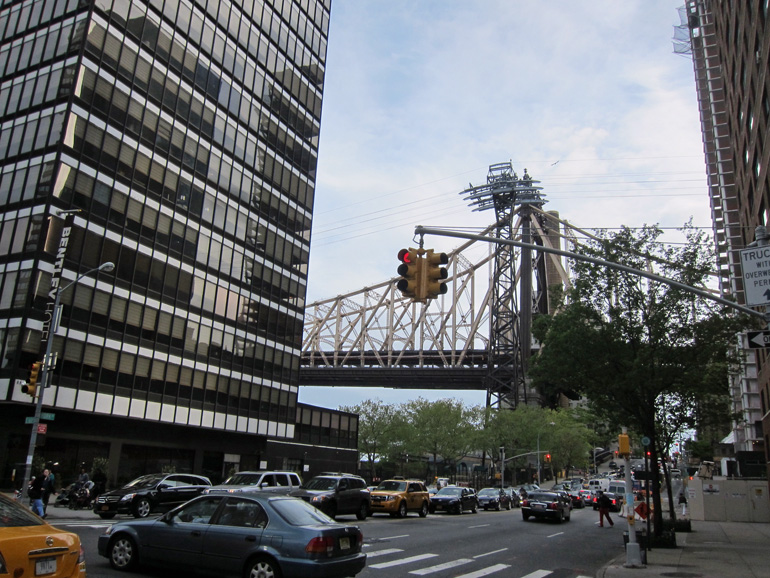Gotham Diary:
In the End
9 May 2013
The other night, as I was talking with Kathleen at bedtime (preventing her from finishing Armadale), I said that I really must write down the first line of my book, which had occurred to me earlier in the day, perhaps at the hospital during the infusion. “This is a story that has to begin at the end.” I knew that it was the opening line the moment it came to me, but I couldn’t have told you why. Well, I might have stammered something. And, if I manage to be artful, some of that stammering will be refined into coherent introductory material. I will try to take my time about getting to the opening close, which has in fact not yet quite crystallized. By then, I think that I’ll have done a good job of expressing what’s truly odd about me — and what has made it so difficult to get going on this project, which is not a memoir.
A memoir almost always entails a journey, in time and through character development. There are notable experiences and lessons learned. As I’ve sifted through the remains of my life, I’ve seen little evidence of journeys and epiphanies. I rather feel that I haven’t moved at all, not an inch, since my days in the playpen. I have remained immobile, in, admittedly, a generally rich environment, and simply ingested whatever in the passing stream seemed suitable, with the result of simply becoming more myself. At the same time, until rather late in life I was also covered in passing debris. But that was encrusted, not ingested, and, as I became more myself, less of it stuck. There was always only one possible result for me, and it wasn’t even a result, because I began as the result. All that changed was my understanding. That developed, yes. But the history of its development is not interesting; it’s a homework assignment that I’m happy to leave undone.
To a degree not only unmanly but somewhat subhuman, I sat still and waited for the right things to come along. And they did. Two very right things came along. Kathleen first, and then the Internet. Of course, once they came along, I knew at once what they meant to me and I held them tightly. I worked hard for both, stripping away much of the false crust — which was, of course, nothing but the remainder of my half-hearted attempts to fit in and be like everyone else. Through Kathleen and, in a way that is subordinate to Kathleen, the Internet I have found my place in society, as a human among humans — and it was where I was sitting all along.
I can well understand that some readers might find this to be a horror story, and that is why I am not going to write about myself directly. Instead, I am going to take inventory.
***
I had been meaning to re-read Joseph O’Neill’s Netherland for several weeks, certainly since re-reading The Great Gatsby, and I got round to starting in on it yesterday, after putting in a long day of paperwork. There was the preliminary problem of how to re-read it. I used to have two copies of the first edition, one of them signed by the author, but the unsigned copy seems to have disappeared in the general slimming of the library, and the signed copy is too precious to manhandle. So I bought the Kindle edition, and I’ve been highlighting passages and making notes therein. The most remarkable thing about Netherland, aside from the lambent beauty of the writing, as strong and supple as a great cat (and as frightening), is the virtuosity with which the narrative is interrupted, and at time buried, by flashes backward and forward in time. By “the narrative” I mean the story of Hans van den Broek’s summer — it is longer than that, but the Gatsby parallel beckons — with Chuck Ramkissoon, a Trinidadian of South Asian background, in a New York City populated largely by immigrants. So far, I don’t think that there has been a twenty-page stretch of the narrative without interruption, and I’m nearly halfway through. These interruptions might be expected to challenge the fiction’s coherence, but they don’t; on the contrary, they enrich and intensify it. In this, Netherland could not be less like Fitzgerald’s masterpiece, which barrels along the timeline of Gatsby’s last months of life with only one or two modest asides in which Nick Carraway mentions his own affairs. Such asides flourish with tropical profusion in Netherland, which spends substantial time in the Netherlands, where the narrator grew up.
When I read Netherland the first time, I was sure that I didn’t get it, that there was something unspeakably cunning going on beneath its gleaming coat. Now I recognize this doubt as a kind of religious ecstasy. There are complexities in Netherland that I may never grasp, because I don’t really know much about cricket or Trinidad or, for the matter of that, Floyd Bennett Field that I didn’t learn here. I don’t bring enough to the novel. But I’m overwhelmed by it nevertheless.

